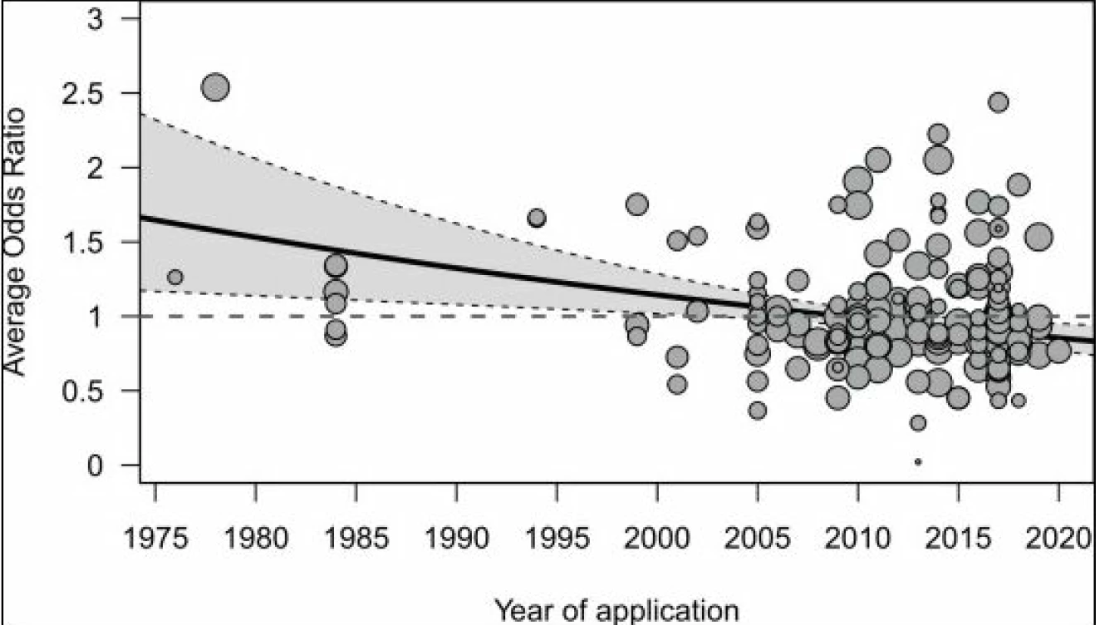Hvor endte du egentlig med at købe RAM og SSD fra? Og hvad måtte du give for dem ift Framework selv?
Jeg er enig med dig, hvis det er en god model, men som der også står i artiklen:
Det er dét spørgsmål, som kritikken af FST kredser om:
Kan man hjælpe et opgivende menneske ved at få en mus til at tro på sin kamp for at slippe væk?
En dårlig model kan sagtens være værre end ingen model. Jeg kan ikke selv vurdere det, men jeg synes det er dejligt, at dyremodeller bliver revurderet. Det er trods alt kun modeller og der er et lidende væsen på den anden side
Der er vist delte meninger. Kritikere mener, at forsøgsmetoden er for usikker, mens dem, der stadig gerne vil benytte den mener den er god. Alle er dog enige i, at der ikke rigtig er nogle gode alternativer pt
Fra artiklen:
Målet med ‘Forced Swim Test (FST)’ er at fremme »adfærdsmæssig opgivenhed« hos enten mus eller rotter. Sådan lyder det ofte i de studier, der anvender forsøget.
Alt psykiatrisk medicin har på et tidspunkt været igennem den her slags test, og FST er et af de ældste og mest anvendte dyremodeller inden for forskning i depression.
You will transfer the economic copyright to most journals upon publication of the typeset manuscript meaning that you're not allowed to publish that particular PDF anywhere. However, a lot of journals are okay with you publishing the pre-peer reviewed article or even sometimes the peer-reviewed, but NOT typeset article (sometimes called post-print article). Scientific publishing is weird :-)
From the article:
Squeezed in alongside their main projects, the investigation took eight years and included dozens of participants. The results, published in 2016, were revelatory [1]. Two to three months after giving birth, multiple regions of the cerebral cortex were, on average, 2% smaller than before conception. And most of them remained smaller two years later. Although shrinkage might evoke the idea of a deficit, the team showed that the degree of cortical reduction predicted the strength of a mother’s attachment to her infant, and proposed that pregnancy prepares the brain for parenthood.
From the article:
To demonstrate model collapse, the researchers took a pre-trained LLM and fine-tuned it by training it using a data set based on Wikipedia entries. They then asked the resulting model to generate its own Wikipedia-style articles. To train the next generation of the model, they started with the same pre-trained LLM, but fine-tuned it on the articles created by its predecessor. They judged the performance of each model by giving it an opening paragraph and asking it to predict the next few sentences, then comparing the output to that of the model trained on real data. The team expected to see errors crop up, says Shumaylov, but were surprised to see “things go wrong very quickly”, he says.
What they see as "bad research" is looking at an older cohort without taking into consideration their earlier drinking habits - that is, were they previously alcoholics or did they generally have other problems with their health?
If you don't correct for these things, you might find that people who are not drinking seems less healthy than people who are. BUT, that's not because they're not drinking, it's just because of their preexisting conditions. Their peers who are drinking a little bit tend to not have these preexisting conditions (on average)
Here's an actual explanation of the 'sneaked reference':
However, we found through a chance encounter that some unscrupulous actors have added extra references, invisible in the text but present in the articles’ metadata, when they submitted the articles to scientific databases. The result? Citation counts for certain researchers or journals have skyrocketed, even though these references were not cited by the authors in their articles.
Could it be this fella who's hitting you up: https://claude.ai/login
Fra artiklen:

I det nye internationale studie har forskerne samlet resultater fra i alt 85 forskellige studier, hvor forskere i 26 forskellige lande har sendt i alt mere end 350.000 fiktive jobansøgninger.
De ældste studier er mere end 40 år gamle, men størstedelen af studierne er fra de seneste to årtier.
At sende to identiske jobansøgninger med forskellige navne – i dette tilfælde henholdsvis et kvindenavn og et mandenavn – anses for at være den bedste metode at måle omfanget af diskrimination i ansættelsesprocesserne.
Hvis en arbejdsgiver oftest inviterer personer med mandenavne til jobsamtaler, kan man konkludere, at den pågældende foretrækker en mand til jobbet. Og omvendt.
I fag, der ikke var kønstypiske (for eksempel bartender, revisor og grafisk designer) fandt forskerne i det nye internationale studie, at arbejdsgiverne foretrak at ansætte mænd frem til omkring år 2010.
Efter 2010 har arbejdsgiverne efterspurgt flere kvinder end mænd.
I typiske kvindefag (for eksempel sygeplejerske, frisør og socialrådgiver) er det blevet stadig sværere for mænd at blive indkaldt til en jobsamtale. Her foretrækker arbejdsgiverne klart at ansætte kvinder.
At mænd, der søger job i kvindefag, bliver diskrimineret, er et robust og stabilt fund, konkluderer forskerne
Fedt, mange tak!